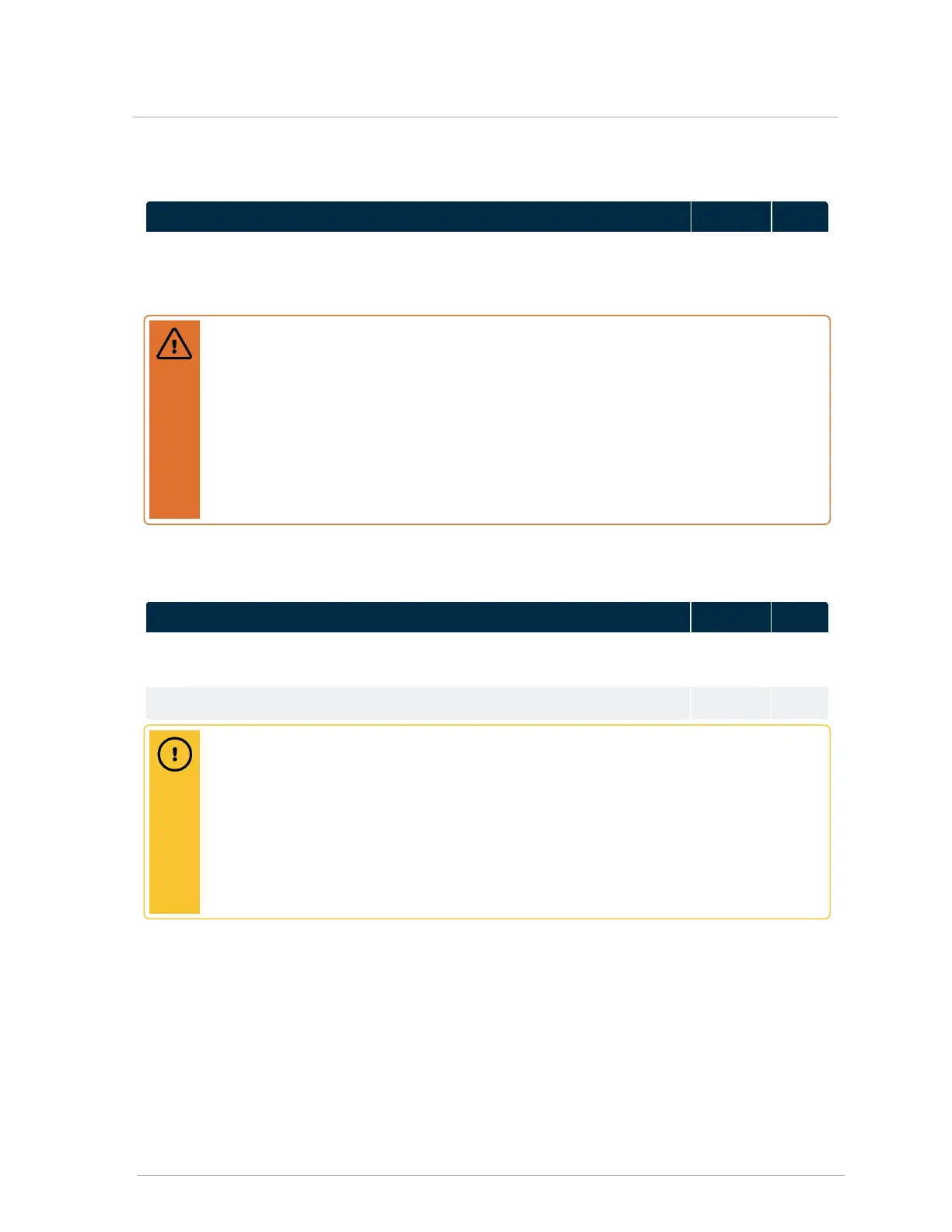6.2.9 Freeze protection
Maintenance to prevent freezing Frequency Check
Check the freeze protection. Use only antifreeze made specifically for hydronic
systems. Inhibited propylene glycol is recommended. Antifreeze volume must be
between 25% and 50% of the total volume of water in the system.
Annually
□
Warning
Do not use automotive-type ethylene or other types of automotive glycol antifreeze, or undiluted
antifreeze of any kind. This may result in severe boiler damage. It is the responsibility of the
Installer to ensure that glycol solutions are formulated to inhibit corrosion in hydronic heating
systems of mixed materials. Improper mixtures and chemical additives may cause damage to
ferrous and non-ferrous components as well as non-metallic, wet components, normally found in
hydronic systems. Ethylene glycol is toxic, and may be prohibited for use by codes applicable to
your installation location. For environmental and toxicity reasons, IBC recommends only using
non-toxic propylene glycol.
6.2.10 Boiler treatment
Maintenance for Boiler Treatment Frequency Check
Check consistency of any boiler treatment used, for appropriate mixture. Chemical
inhibitors are consumed over time, lowering their density.
Annually
□
Verify proper operation after servicing.
Annually
□
Caution
Installers should inquire of local water purveyors as to the suitability of their supply for use in
hydronic heating systems.
If water quality is questionable, a local water treatment expert must be consulted for testing,
assessment and, if required, treatment.
Alternatively, water or hydronic fluid of known quality can be brought to the site.
6.2.11 Relief valve - maintenance and testing
The relief valve manufacturer requires that under normal operating conditions a “try lever test” must be
performed every two months.
Under severe service conditions, or if corrosion and/or deposits are noticed within the valve body, testing
must be performed more often. A “try lever test” must also be performed at the end of any non-service period.
